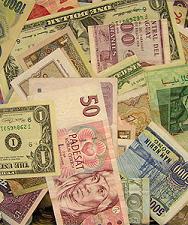VIDEO: The Economic Crisis: “Major Currencies Can Simply Collapse”

Obama is urging China to review its currency policy despite Chinese officials made it clear that they are not going to tolerate any interference from abroad to this issue.
Is this going to become a major topic of the G-20 meeting in Canada and what’s the mood their on the eve of the summit?
Michel Chossudovsky says that the financial crisis is not over as President Barack Obama has hinted.
We invite our readers to view our new TV website GRTV:
VIEW ON GRTV (GLOBAL RESEARCH TV)
The G-20 summit takes place in Canada next week, but spats between the United States and China over currency concerns are already taking place.
China is sending out a clear message, leave our currency alone. US President Barack Obama sent a letter to the G-20 partners, indirectly challenging China and calling for a market determined exchange rate. The US is essentially accusing China of currency manipulation.
“The whole thing is basically a total farce,” said Joe Weisenthal, the deputy editor of Business Insider.
“Every country manipulates its currency,” he added.
Weisenthal argues that it’s true, China does manipulate their currency, but so do other nations in order to keep their currency down in order to encourage exports. China however is more aggressive in their currency manipulation.
“The US would very much like to see China let the Yuan strengthen a bit, make its own workers less cost competitive and make our workers more cost competitive,” said Weisenthal.
It is likely China will do so on its own schedule, since it will give Chinese consumers increased buying power, which stimulates the demand for imports.
Currencies have been hitting record lows and gold has hit record highs. The topic of global currencies is likely to be a main focus of the upcoming G-20 summit.
Obama has expressed concern over the austerity measures in Europe and the possibility that they could fuel the downturn in the economy.
“I think it is a concern of the United States that if Europe slows its own demand, slows its own economy intentionally out of this idea of austerity, if Germany were to cut its budget aggressively, France as well, that would really slow global growth and that that would eventually slow our economy as well,” said Weisenthal.
Michel Chossudovsky, the director of the Centre for Research on Globalization, argues that the US is meddling in the internal affairs of China.
“It’s not market determined exchange rates that we’re dealing with, it is exchange rates which are determined by speculative trade, the massive trade of derivatives,” said Chossudovsky.
Chossudovsky argues that the currency issue is one for national policy.
“Really what is at stake is not the fact that China pegs its currency to a basket, but the fact that it doesn’t let it float. It doesn’t let it float, because it knows fair well that the moment you let it float, like Brazil, like Indonesia, Thailand, what happens is the speculators come in and they wage attacks against these currencies. I’m not talking about small speculators, I’m talking about large financial institutions which operate in the currency markets. China understands that stability in exchange rates is the basis for economic development.,” said Chossudovsky.
Investigative Journalist Webster Tarpley said Obama’s letter targets both China and Germany.
“The general idea is that Obama and Geithner and Summers have telegraphed their strategy, and if I can sum it up in the broad sense, it’s to keep the Euro down, the Renminbi [Yuan] up, to keep the Germans out and to keep derivatives in command of everything,” said Tarpley.
He argues that the Obama administration is working to direct the forces of the economic depression against others.
“The general ideas is to save the dollar,” said Tarpley.arpley argued that the Obama administration’s planned actions to regulate the financial sector and derivatives are “hogwash” and are nothing more than words.

